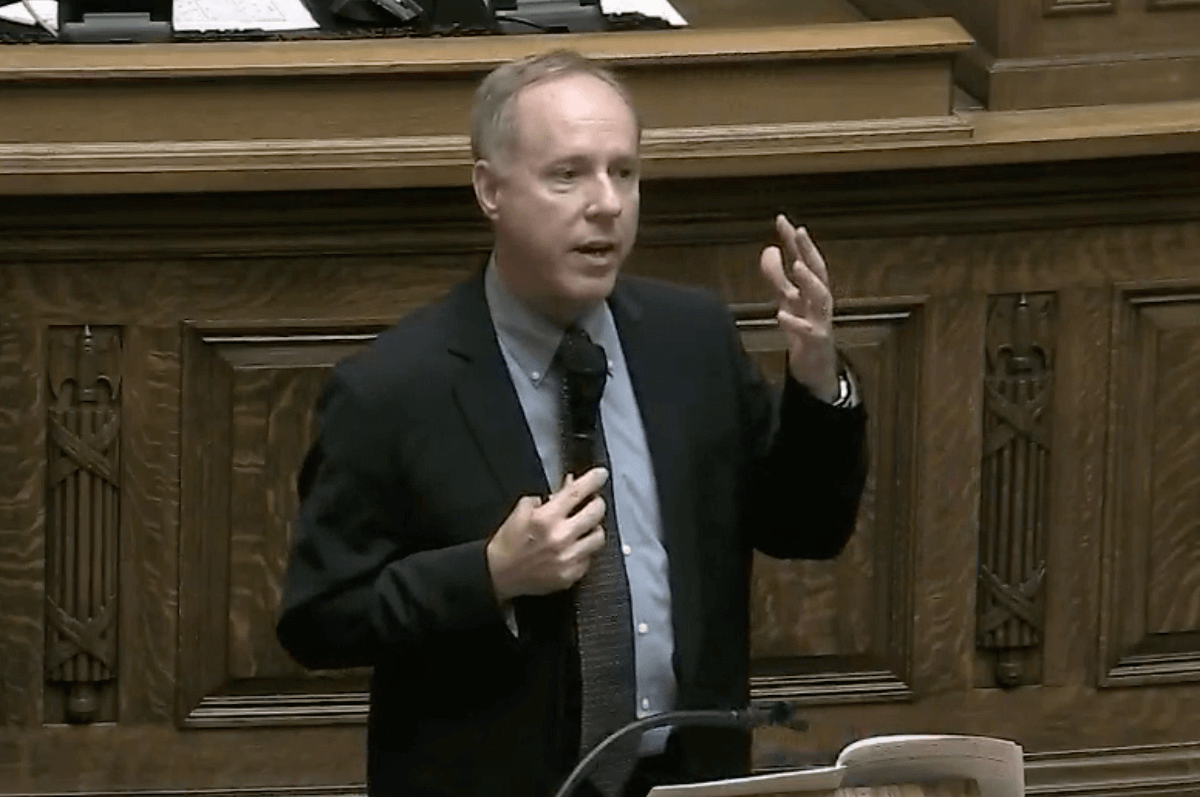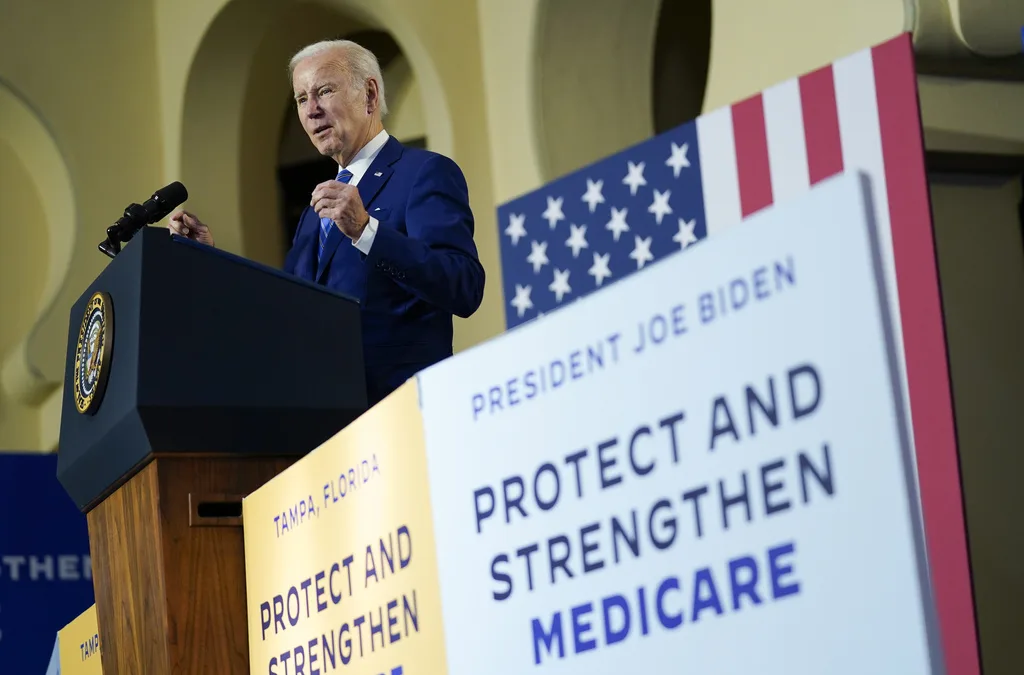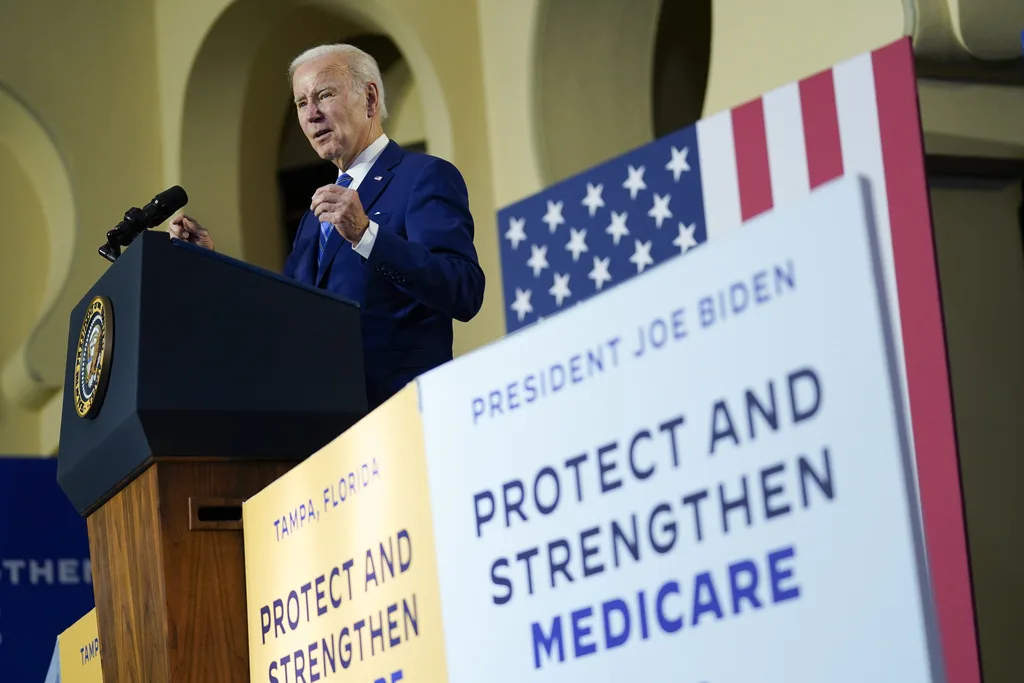
#image_title
#image_title
Republican lawmakers proposed electoral maps that will maintain their gerrymandered majority established in 2011.
Assembly Speaker Robin Vos (R-Rochester) and Senate Majority Speaker Devin LeMahieu (R-Oostburg) on Thursday defended the redistricting maps put forward by legislative Republicans, which they said were drawn to make as few changes as possible to the 2011 gerrymandered map.
The state is in the midst of drawing new political maps, a process that happens every 10 years to account for population changes. Republicans controlled both chambers of the Legislature and the governorship in 2011 and drew maps that locked in their electoral advantage for the decade, but Gov. Tony Evers and others have supported a nonpartisan process that would prevent future gerrymandering.
More than 150 Wisconsinites attended the hearing to speak against the Legislature’s proposed gerrymandered maps. At a Wisconsin Fair Maps Coalition press conference before the hearing, Matt Rothschild, executive director of the Wisconsin Democracy Campaign, called the Legislature’s maps a “slap in the face.”
“The maps are rigged again, and the people of Wisconsin won’t stand for it,” Rothschild said. “We demand independent, nonpartisan redistricting, not hyper-partisan gerrymandering and non-competitive districts.”
When Sen. Kelda Roys (D-Madison) asked Vos on Thursday whether partisan advantage was taken into consideration with Republicans’ newly proposed maps, he said, “It is a constitutional allowance… but that was not the driving criteria.”
Vos said they prioritize not moving incumbents into the same district, and moving as few voters as possible to a different district, even though Republicans moved 719 times more voters than necessary in 2011. While Vos called these “traditional redistricting priorities,” Rep. Sondy Pope (D-Mount Horeb) said she thought Vos “just made it up.”
At the same time they defended the 2011 map, Vos and LeMahieu also distanced themselves from that mapping process—Vos by arguing he was not speaker at the time, and LeMahieu by pointing out he had not yet been elected to the Legislature.
RELATED: Proposed GOP Maps Would End Evers’ Ability to Veto Any of Their Bills
“If you want to spend the entire time up here discussing what happened 10 years ago, we can do that,” Vos said during testimony on the Republican maps before a joint legislative committee.
But Democrats on the committee pointed out that they wanted to talk about the 2011 maps because Republicans explicitly stated they planned to make as few changes as possible. While Vos and LeMahieu said they based the maps on the People’s Maps Commission and input from the public, the proposed maps they released last week are 84% consistent with the current Assembly map, 92% consistent with current Senate maps, and 93% consistent with current congressional maps, according to analysis from the state’s nonpartisan Legislative Reference Bureau.
Wisconsin Has ‘Had Enough’
Wisconsin Fair Maps Coalition Chair Sachin Chheda pointed out in a statement that the Legislature submitted its maps hours after closing the portal on the Draw Your District website, casting doubt on Vos’ claim that Republicans actually took public input into consideration because of the considerable time it takes to draw an electoral map.
Vos instead characterized the discussion as nothing more than whining from the opposite party: “Democrats have a problem with winning in Wisconsin because your agenda is out of step with the majority of Wisconsin.”
The 2012 election, the first with the 2011 map, saw a “Democratic landslide” but 60% of the Assembly remained in Republican hands as districts that were once competitive no longer were so. In 2018, Assembly Democrats received 54% of the popular vote but only retained 36% of Assembly seats.
Vos deflected the line of questioning on why Democrats get more votes but fewer seats by stating he would like to have a public hearing about supposed election fraud in the 2020 Presidential Election, despite all evidence indicating the election was fair and the vote count was accurate.
Sen. Jeff Smith (D-Brunswich) asked Vos why, “if [Republicans] have better candidates,” they moved and disenfranchised so many voters in 2011 “and now do this ‘least-change’ map and not move those people back.”
When asked how much Republicans spent in legal fees to create the 2011 maps, which were drawn in secret by attorneys and political consultants, Vos deflected. He said Republicans spent more on defending the maps and even cited one of the far-right’s favorite boogeymen: “I don’t know where the money [for the lawsuits against the Republican-drawn maps] came from, maybe George Soros or something.”
In her speech before the hearing, Debra Cronmiller, executive director of the League of Women Voters of Wisconsin, said gerrymandered maps lead to more hyperpartisanship.
“We’ve endured this broken, gerrymandered system for far too long,” Cronmiller said. “These maps create a hyper-partisan environment which makes political competition, civil discourse, and good governance nearly impossible. Wisconsinites across the state have had enough and are showing up, speaking out, and calling on their elected officials to demand their voices be represented.”
Politics

The Republican war on Medicare raises the stakes in 2024
Nearly 1.3 million Wisconsinites rely on Medicare benefits—benefits they spent decades paying into, with the promise that the program would be there...

Opinion: Donald Trump’s attacks on abortion rights puts politicians between doctors and their patients
In this op-ed, UW-Madison Medical Student, Charlotte Urban, discusses Trump’s attack on abortion rights and health care, emphasizing the importance...
Local News

Where to buy farm-fresh eggs in western Wisconsin
There’s nothing better than eggs from a local farm. Of course, they taste fresher and last longer, but the best part is that you’re supporting a...

13 local bookstores every Wisconsin reader should know
Whether you’re sitting outside enjoying beautiful weather or curling up inside during a snowstorm, it’s always a great time to crack open a book....




